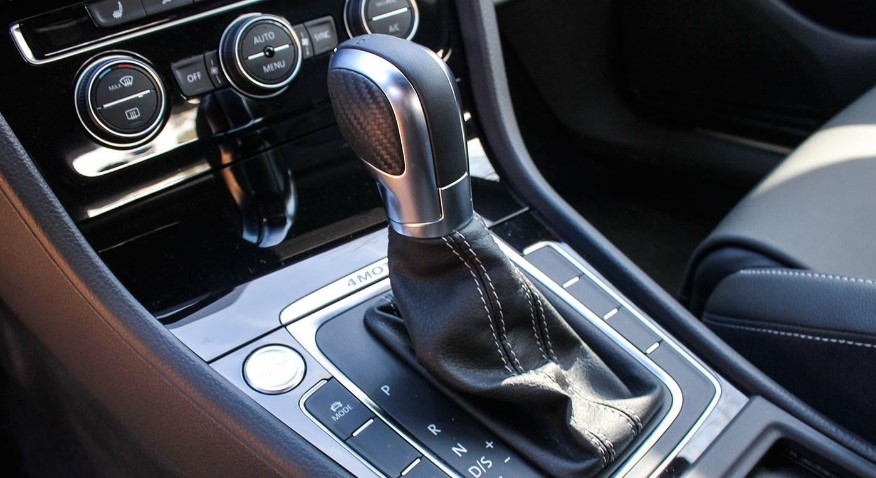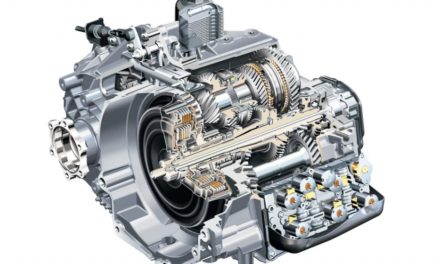A DSG gearbox is a type of automatic gearbox that uses two clutches and two gearboxes to shift gears faster and more smoothly than a conventional automatic It stands for Direct Shift Gearbox and it was developed by Volkswagen Group. It can be found on many cars including Volkswagen, Audi, Skoda, SEAT, Ford, Hyundai, and Kia.
How does a DSG Gearbox work?
A DSG gearbox works by having one clutch for odd-numbered gears and another clutch for even-numbered gears. This allows the gearbox to pre-select the next gear before disengaging the current one, resulting in quicker and smoother gear changes. The gear selection can be fully automatic or semi-manual using paddles or a lever.
A DSG gearbox can offer some advantages over a conventional automatic gearbox, such as better fuel economy, lower emissions, more responsive performance, and more driving enjoyment. However, it can also have some disadvantages, such as higher cost, higher maintenance requirements, lower reliability, and potential issues with low-speed manoeuvres or traffic jams.
Common issues with DSG Gearboxes
A DSG gearbox is an automatic dual-clutch gearbox that is electronically controlled. Some common issues with DSG gearboxes are:
- Shaking and shuddering
- Gear slippage
- Transmission overheating
- Grinding noises
- Mechatronic failure
Let’s find out more about these issues
Shaking and shuddering
Shaking and shuddering is a common problem with DSG transmissions that can cause poor drivability and discomfort. It can happen when braking gently to a halt or when accelerating from a stop. Some possible causes of shaking and shuddering are:
- A faulty or off-balance dual mass flywheel
- Low or contaminated DSG fluid level
- Worn or damaged clutches
Gear slippage
Gear slippage is a problem with DSG transmissions that can cause slow response or further damage to the transmission system1. It can happen when shifting from one gear to another, especially from 2nd to 3rd gear. Some possible causes of gear slippage are:
- Low or contaminated DSG fluid level
- Faulty solenoid valve
- Worn or damaged clutches
Grinding noises
Grinding noises are a problem with DSG transmissions that can indicate a serious mechanical issue1. They can happen when shifting from one gear to another, especially at low speed or under load. Some possible causes of grinding noises are:
- Worn or damaged clutches
- Faulty mechatronic unit
- Misaligned gear sets
Mechatronic failure
Mechatronic failure is a problem with DSG transmissions that can affect gear selection, shifting, and performance1. The mechatronic unit is an electrohydraulic robot that controls the clutches, valves, and sensors of the transmission. Some possible signs of mechatronic failure are:
- Flashing PRNDS lights on the dashboard
- Erratic or delayed gear changes
- Loss of power or acceleration
6 Speed vs 7 Speed DSG Gearboxes
The 7-speed DSG gearbox (DQ200) is commonly accepted to be less reliable than the 6-speed as it uses a dry clutch type, which is more prone to failure. The wet clutch type, on the other hand, is more reliable, stronger and smoother but it requires regular oil changes.
The 6-speed DSG gearbox is known as the DQ250. The DQ250 gearbox is a dual-clutch transmission introduced by Volkswagen AG in 2003. It is designed for vehicles with an engine torque up to 350-380 Nm. The DSG DQ200 gearbox is a 7-speed automatic double-clutch gearbox that was designed by Volkswagen AG for vehicles with an engine torque up to 250 Nm. It has a dry double clutch and a hydraulic control system.
It’s commonly accepted that the 6 speed DSG gearbox is better for high-performance cars as it is designed to handle more torque.
Does using launch control damage your DSG Gearbox
Launch control is a feature that allows you to accelerate your car from a standstill with maximum performance. It works by holding the engine at a high RPM and then releasing the clutch quickly when you release the brake pedal.
Using launch control can cause some damage to your DSG gearbox over time, especially to the clutch pack. The clutch pack is a set of friction plates that engage and disengage different gears. When you use launch control, you put a lot of stress on these plates, which can wear them out faster.
You should always let the gearbox oil warm up before using launch control.
How to take care of your DSG Gearbox
- Do not use the accelerator to keep the car on slopes, as this can damage the clutches
- Do not sit for long periods with the brake pedal depressed and the gearbox in drive mode, as this can wear out the clutch plates
- Do not neglect regular oil and filter changes, as this can affect the performance and reliability of the gearbox
- Let the engine / gearbox warm up before using launch control
Let’s hear from you.
Have you had issues with your DSG gearbox? Let us know your experiences in the comments below





Subject :- Regarding my Car Vento TSI still not running.
The point wise details under the above topic are as follows-
1. I have Volkswagen’s Vento 1.2 TSI petrol car, which has DSG Gear box. This is a 2017 model and has covered only 26000 kms so far.
2. Was parked in the parking lot last July 2023. The entire tire was submerged in the flood water and the inside of the car was also filled with water.
3. Due to this the gear lever was not shifting from P mode. P was flashing in the dashboard.
4. The car kept drying in the sun for 15 to 20 days.
5. Even car was starting well. The original sound was coming like a new car. Engine was perfect.
6. After watching a video on YouTube – “Factory reset DSG gear box in minutes”, I did the following while standing –
(a) Sitting inside the car.
(b) Locked the doors.
(c) Put the key in the ignition and turn it to accessory position. Waited for 15 seconds.
(d) Now pressed the gas pedal and kept it pressed for 30 seconds.
(e) After this, switched it off and took out the key.
(f) Took the foot off the gas pedal.
(g) Now waited for 3 minutes.
(h) After this the car was started.
7. After doing the above steps and starting the car, a loud noise came from below. The engine sound started getting louder and the RPM also increased slightly.
8. After this another incident happened. To take the car to the Service Centre, open the cover of the gear lever, press the yellow button and put it in Neutral in the Emergency programme.
9. During this emergency program, the lever shifted to Reverse (R) due to which the whole car shocked and there was a loud rattling sound came from below.
10. In the company’s Bhopal service center, the entire system below gear lever was only found to be damaged due to waterlogging, which was replaced with a brand new one.
[27/11, 19:36] Jitendra Mishra: 11. Service center people said that flywheel and clutch plate will also be changed but I
Refused because the car had driven only 26000 KM. The center wanted to increase the estimate. I felt that way.
12. After having cleaned the rust/dust and clean the fly wheel with chemicals, gear box fitted back.
13. Brought home 300 KM from Bhopal while driving the car. On the front left side of the car, intermittent gurgling sounds and shocks kept coming.
14. Now there are vibrations in the engine when the car is started. The sound is also getting louder. Although RPM is normal.
15. When driving on the road, intermittent whirring sounds start coming from the front left side and jerks are felt intermittently. Gears fit properly and do not slip.
Please tell what could be wrong with the car? What should I do now? I have already spent Rs 1,50,000 in VW service center but the situation is same. Car is not able to move on the road.
Jitendra Mishra
[email protected]